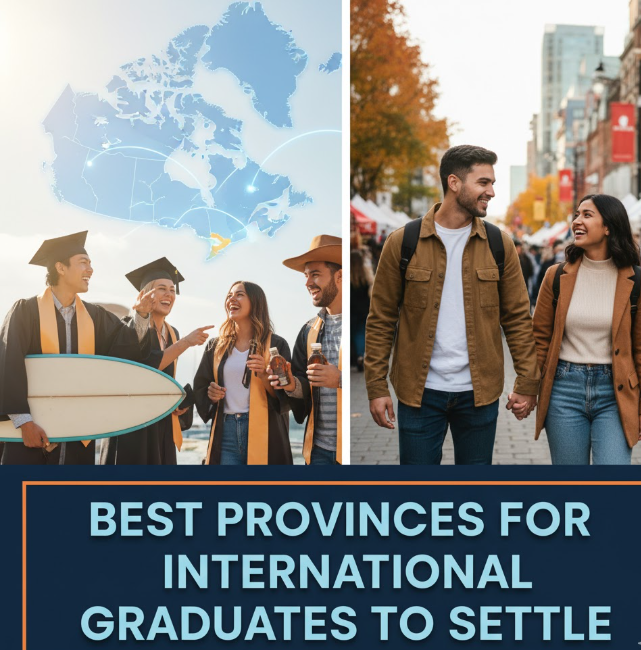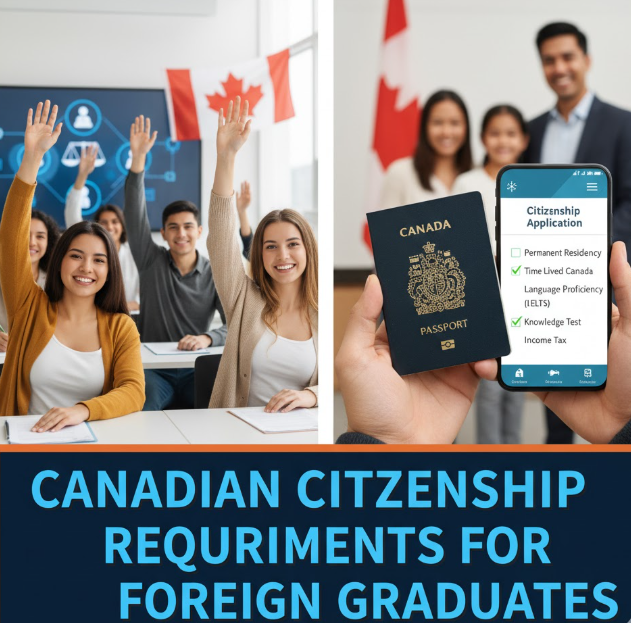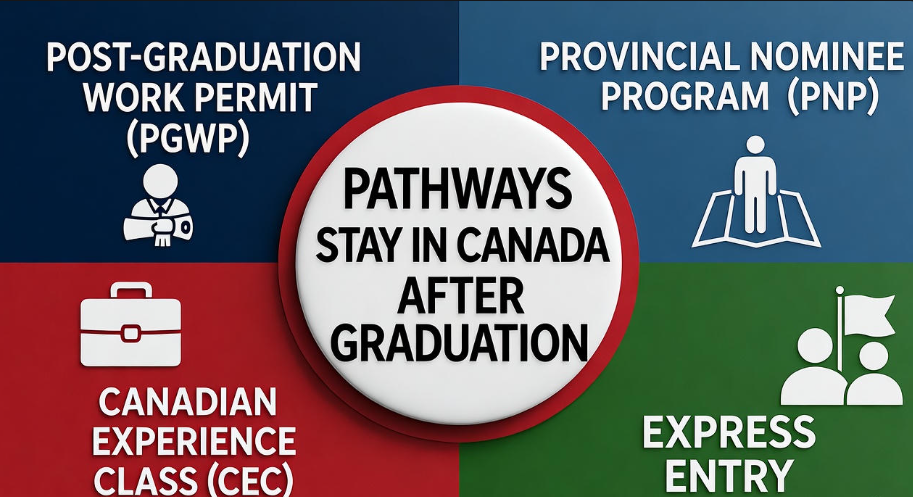The prospect of moving to another country after graduation is exciting, but it can also be intimidating. If you’re fresh out of school and looking to establish yourself in Canada, the province you choose to settle in can make all the difference. Some places have better job opportunities, cheaper living costs, and even more direct routes to permanent residency than others.
While Canada is welcoming of international grads, not all provinces are created equal. Each region has its own personality, economy, job market and immigration programs specifically for people like you. Whether you have big-city energy, mountain village or small-town charm in your dreams, there is a perfect spot here waiting for you.
This cheat sheet demystifies the most popular provinces where international graduates are winning right now. We’ll analyze job opportunities, the cost of living, immigration routes and quality of life to help you make the smartest decision for your future.
Ontario: Where Opportunities Meet Diversity
Ontario is Canada’s financial powerhouse, and home to almost 40% of the country’s population. This Province provides exceptional career opportunities and diversity for international graduates.
Why Toronto and Beyond Matter
Canada’s most populous city, Toronto is home to head offices of several banks and many technology firms and creative agencies. But Ontario is not just Toronto. And of course, every city has its unique industry and job market; in cities such as Ottawa (the nation’s capital), Mississauga, Waterloo and Hamilton.
In the technology field, Waterloo is second only to Silicon Valley in some respects. Ottawa’s government jobs are known for their stability and solid benefits. Mississauga provides manufacturing and logistics employment. This diversity will help you escape getting pigeonholed in one type of work.
Jobs You Can Actually Get
Most in-demand Jobs in Ontario for Graduates:
- Information technology and software development
- Finance and banking
- Healthcare and nursing
- Engineering (civil, mechanical, electrical)
- Marketing and digital media
- Hospitality and tourism management
Entry-level positions have starting salaries between $45,000 and $75,000 a year (depending on where you work). Tech workers in particular often make more, especially if they have in-demand skills like data science or cybersecurity.
The Ontario Immigrant Nominee Program (OINP)
Ontario makes it slightly easier for graduates to remain permanently. The OINP has stream for international students:
Masters Graduate Stream: If you have graduated with a master’s degree from an Ontario university, You don’t need to have any job offer in hand. You need decent English or French and money to support yourself.
PhD Graduate Stream: Like the master’s stream, except for those who completed doctorate studies. The requirements are even less strict.
Employer Job Offer Streams: Candidates must have a qualifying job offer, but professional opportunities are available for graduates in all levels of education (degree or diploma at college level).
What It Costs to Live Here
If we’re being honest, Ontario can be expensive and especially Toronto. Here’s what you’ll spend monthly:
| Expense Category | Toronto | Ottawa | Smaller Cities |
|---|---|---|---|
| Rent (1-Bedroom) | $2,200-$2,800 | $1,500-$2,000 | $1,000-$1,500 |
| Groceries | $350-$500 | $300-$450 | $250-$400 |
| Transportation | $156 (transit pass) | $156 (transit pass) | $156 (transit pass) |
| Phone & Internet | $100-$150 | $100-$150 | $100-$150 |
| Entertainment | $200-$400 | $150-$300 | $100-$250 |
In Toronto, you would need to be earning at least $3,500 to $4,000 a month — after taxes — just to get by on the basics. Smaller Ontario cities, such as London or Kingston, offer better affordability but similar strong employment opportunities.
Life Quality and Community
Ontario’s diversity translates into communities from your home country, restaurants that offer your favorite foods, and cultural festivals every month. The province also has leading hospitals, good public transit in its major cities and endless recreational opportunities.
Winters are cold (you can count on snow from December to March), but summers are lovely. The lifestyle combines urban convenience with access to lakes, parks and outdoor activities.
British Columbia: Nature and a Tech Boom
It is this latter point that makes British Columbia (BC) truly special – a strong economy blended with beautiful natural surroundings. Mountains, sea and woods serve as a backdrop that turns everyday living into vacation.
Vancouver’s Growing Economy
Vancouver rules BC’s labour market, but not alone. Victoria, Kelowna and Surrey also have good prospects for graduates.
The film and television industry is very strong here (Vancouver is known as “Hollywood North”). Tech companies are booming, enticed by quality of life and talented workers. The economy also generates logistics and business jobs in the port and trade sectors. Tourism supports hospitality careers year-round.
Career Paths That Work
BC welcomes graduates in:
- Film production and digital media
- Software engineering and tech
- Healthcare professions
- Tourism and hospitality management
- Environmental science and sustainability
- Trade and logistics
Entry-level pay can fall between $42,000 to $70,000, with tech and film professionals routinely making more as they gain experience.
British Columbia Provincial Nominee Program (BC PNP)
Immigration BC has an International Graduate category, which was set up to target those who studied in B.C.
You’ll need:
- A degree, diploma or certificate from a BC institution
- A job related to your degree
- Sufficient command of the English or French language
- Financial ability to support yourself
The BC PNP moves rather quickly and a nomination, for all practical purpose make your final PR applications that much more likely to lead you getting PR.
-
Moving to Canada soon? Here are important things to know before relocating for studies — Read full guide
Living Costs in Paradise
BC, Vancouver in particular, is one of the priciest places to live in Canada:
| Expense Category | Vancouver | Victoria | Kelowna |
|---|---|---|---|
| Rent (1-bedroom) | $2,400-$3,200 | $1,800-$2,400 | $1,500-$2,000 |
| Groceries | $350-$500 | $300-$450 | $280-$420 |
| Transportation | $136 (transit pass) | $85 (transit pass) | $55 (transit pass) |
| Phone & Internet | $100-$150 | $100-$150 | $100-$150 |
| Entertainment | $250-$450 | $200-$350 | $150-$300 |
The expense of housing dominates your budget here. Many graduates live in shared apartments or rent rooms to save money. The mild winters (sub-zero temperatures are uncommon) mean less to spend on heating than in some other provinces.
Why People Love Living Here
BC’s climate is Canada’s mildest. And it’s not that cold: Vancouver doesn’t get much snow, and the temperature is fine all year long. In some seasons, you can ski in the morning and sail in the afternoon.
The outdoor lifestyle is unparalleled — community members hike, bike, kayak and camp regularly. The food scene competes with any major city, boasting phenomenal Asian fare and farm-to-table dining. BC is very multicultural, and newcomers will be made to feel at home in no time.
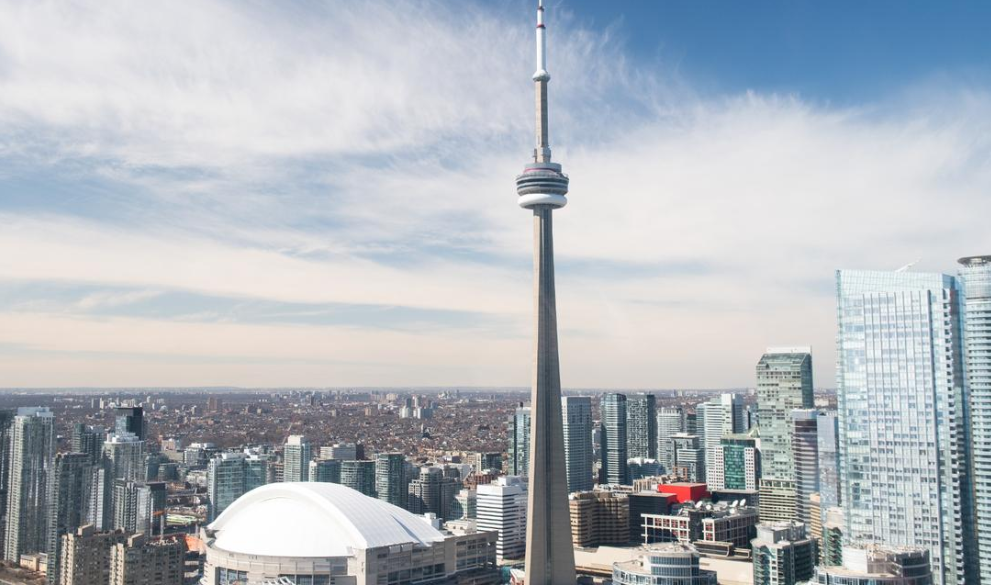
Alberta: High Salaries, Lower Costs
Alberta offers a very lucrative prospect for international graduates, who get to earn big salaries while keeping expenses low. Rare in Canada, this province offers high wages and low living costs.
Calgary and Edmonton: Pacing the Nation
Both Calgary and Edmonton, Alberta’s two big cities, have their pros. Calgary is close to the Rockies and known for its entrepreneurial spirit. The provincial capital is Edmonton, with secure government jobs and an expanding tech sector.
Beyond these cities, there are places like Lethbridge, Red Deer and Fort McMurray with opportunities in agriculture, energy and resource sectors.
Industries Hiring Now
Alberta’s economy is now more than oil and gas. Graduates find work in:
- Energy industry (oil, gas and renewables)
- Engineering and construction
- Information technology
- Healthcare and medical services
- Agriculture and food processing
- Finance and professional services
Entry level salaries in Alberta are typically higher than in other provinces, varying from $48,000 to $80,000. Engineers and tech workers can make even more.
Alberta Advantage Immigration Program
The immigration systems of Alberta includes streams for international students who received education in the province:
Alberta Opportunity Stream: Needs to have completed minimum 1 year of work in Alberta, working on an eligible occupation. Your employer doesn’t need to be the one who nominates you, but you must have a full-time job offer.
Rural Renewal Stream: To help smaller communities outside Calgary and Edmonton, while also providing pathways for graduates who are prepared to live and work in rural locations.
The province is actively seeking international candidates and manages applications quickly.
Your Money Goes Further Here
Alberta has the lowest provincial tax in Canada and no provincial sales tax. Here’s what life costs:
| Expense Category | Calgary | Edmonton | Smaller Cities |
|---|---|---|---|
| Rent (1-bedroom) | $1,400-$1,900 | $1,100-$1,600 | $800-$1,200 |
| Groceries | $300-$450 | $280-$420 | $250-$400 |
| Transportation | $112 (transit pass) | $100 (transit pass) | $60-$90 |
| Phone & Internet | $100-$150 | $100-$150 | $100-$150 |
| Entertainment | $200-$350 | $180-$300 | $120-$250 |
You’ll end up with far more left in your pocket compared to Ontario or BC and be making the same or higher wages. This combination helps you pay off student loans more quickly in addition to saving.
Life in the Prairie Provinces
The seasons are so actual here unlike the reverse at least 8 months of them are cold also warm summers. January temperatures fall far below zero, but buildings are warm and life goes on as usual.
The people are nice, and life moves slower than in Toronto or Vancouver. Calgary and Edmonton each have thriving arts scenes, major-league sports teams, and solid festivals. An hours drive to the Rocky Mountains with its world class skiing, hiking and natural landscape.
Quebec: A French Culture and Its Singular Opportunities
Quebec is unique among Canadian provinces in its culture, language and European feel. For graduates who are eager to learn French or already speak it, Quebec has a lot more in store.
Montreal: Price-Conscious World City
Montreal offers the amenities of a big city at an unexpectedly affordable cost of living. This innovative center has drawn a diverse group of artists, musicians, tech workers and entrepreneurs from across the globe.
Charm and history are available in the provincial capital, Quebec City. Laval, Gatineau and Sherbrooke are other options for graduates looking to expand their job search beyond Montreal.
Careers for Bilingual Graduates
Quebec’s job market privileges French speakers, though many of the international companies in Montreal function in English. Key industries include:
- Aerospace and aviation
- Artificial intelligence and machine learning
- Video game development
- Biotechnology and pharmaceuticals
- Finance and insurance
- Film and television production
Starting salaries are between $40,000 and $65,000 – a bit higher than in Ontario or BC for many roles but all living costs are much lower.
Quebec Experience Program (PEQ)
Quebec operates its own immigration system that works alongside federal programs. More precisely, the PEQ is intended for foreign students that completed their studies in Quebec.
Requirements include:
- Graduating from a Quebec institution with either a diploma or degree
- High intermediate speaking/listening in French
- Desire to live in Quebec forever
It is one of fastest ways to obtain Canadian permanent residency – with processing times measured in months, not years.
Living Affordably in Style
Quebec — I mean Montreal in particular, but Quebec across the board — is just an amazing value:
| Expense Category | Montreal | Quebec City | Smaller Cities |
|---|---|---|---|
| Rent (1-bedroom) | $1,200-$1,800 | $1,000-$1,400 | $700-$1,100 |
| Groceries | $280-$400 | $260-$380 | $240-$360 |
| Transportation | $94 (transit pass) | $89 (transit pass) | $60-$85 |
| Phone & Internet | $100-$150 | $100-$150 | $100-$150 |
| Entertainment | $180-$350 | $150-$300 | $100-$250 |
The lower expenses are paving the way for a better quality of life on an average salary. Restaurant scene, nightlife and culture — You can eat & drink out every night of the week here at less than half the price of most cities.
French Language and Cultural Life
Here’s the truth: If you want to make it in Quebec, you have to learn French. Though Montreal has English-speaking areas and English-language workplaces, French is the dominant language outside the city and in government services.
Most universities offer French classes, and the Quebec government provide free of charge French courses for immigrants. The investment returns dividends in jobs, stronger community connections and easier maneuvering through daily life.
The culture of Quebec combines European loveliness with North American vitality. To boot, festivals spring up all year long; food is abundant, and the arts scene is world-famous. Winters are snowy and cold, a reality which people accept with winter sports and snug cafés.
Manitoba: Welcoming Communities, Growing Economy
It may not be as high profile as Ontario or BC, but Manitoba is seriously worth considering for international graduates. This prairie province extends real warmth and affordability, along with geography that belies the stereotype of endless flatlands, yet also provides straightforward immigration options.
Winnipeg and Beyond
The provincial capital, Winnipeg, is the most densely populated city in Western Canada. It is a mid-sized city with big-city amenities at small-town prices. Brandon, Steinbach and several other communities have even cheaper options.
The economy is centred on manufacturing, agriculture, transportation and increasingly technology. There are always jobs in health care here.
Job Opportunities for Graduates
Manitoba graduates find work in:
- Healthcare and social services
- Manufacturing and production
- Transportation and logistics
- Information technology
- Business and finance
- Skilled trades
Entry-level pay generally falls between $38,000 and $60,000 a year, lower than wages offered in coastal provinces but perfectly fine for potential living expenses.
Manitoba Provincial Nominee Program (MPNP)
Manitoba has one of the most accepting immigration programmes in Canada. The International Education Stream is for graduates of an educational institution in Manitoba.
Career Employment Pathway: You must have a full-time job offer in your area of study from a Manitoba employer. It must be full time and permanent, or at least a year in duration.
Graduate Internship Stream: Even internships can be eligible in some circumstances, which allows new graduates who are still gaining experience to apply through this stream.
Manitoba is eager to keep international students and process your applications quickly.
What You’ll Spend Monthly
Manitoba is home to some of the cheapest house prices in all of Canada:
| Expense Category | Winnipeg | Brandon | Rural |
|---|---|---|---|
| Rent (1-bedroom) | $1,000-$1,400 | $800-$1,100 | $600-$900 |
| Groceries | $260-$380 | $240-$350 | $220-$330 |
| Transportation | $108 (transit pass) | $60-$80 | $50-$70 |
| Phone & Internet | $100-$150 | $100-$150 | $100-$150 |
| Entertainment | $150-$300 | $120-$250 | $80-$200 |
You can live a comfortable life on a modest salary, save and still enjoy it. The low fees are helping recent graduates set themselves up in life without crippling debts.
Community and Quality of Life
Manitobans are genuinely friendly. The province has robust immigrant communities and support systems. Yes, winters are cold (by that I mean colder than in any other province), but the locals have fun with it with winter carnivals, hockey and good snow/cold weather gear.
Winnipeg provides professional sports, fantastic museums, a wealth of places to eat and vibrant nightlife. Summertime is gorgeous and warm which makes for some great boating & outdoor fun.
Nova Scotia: The Maritimes and Opportunity Collide
Nova Scotia, on Canada’s east coast, offers ocean views, historic charm and a burgeoning economy. Migrants who studied abroad are increasingly streamed into this eastern sea-girt province for a change of pace.
Halifax and the Maritime Economy
The province’s economic center is Halifax, its capital city. In this port city, universities sit alongside hospitals next to tech companies and military installations. Alternate exists in smaller communities like Dartmouth, Truro and Cape Breton.
The ocean dominates everything about this place — from fishing and shipping to tourism, and even the weather. The economy has shifted towards technology, healthcare and financial services.
Career Fields That Work
Our graduates have gone on to work in:
- Ocean technology and marine sciences
- Healthcare and nursing
- Information technology
- Tourism and hospitality
- Finance and insurance
- Skilled trades and construction
Starting salaries range from $36,000 to $58,000 — less than in western provinces but equivalent to the cost of living here.
Nova Scotia Nominee Program (NSNP)
Nova Scotia immigration has specific streams for international graduates:
International Graduate Entrepreneur Stream: For international graduates who want to start a business in Nova Scotia. This all but neoteric course is designed for entrepreneurial-minded graduates.
Labour Market Priorities Stream: Focuses on occupations in demand and could include recent foreign graduates with required skills.
International talent is also encouraged to look at the province of Nova Scotia where it has support programs for all newcomers.
Living by the Ocean
Nova Scotia has a relatively low cost of living, especially outside Halifax:
| Expense Category | Halifax | Smaller Cities | Rural Areas |
|---|---|---|---|
| Rent (1-bedroom) | $1,400-$1,900 | $900-$1,300 | $700-$1,000 |
| Groceries | $280-$400 | $250-$370 | $230-$350 |
| Transportation | $94.50 (transit pass) | $60-$80 | $50-$70 |
| Phone & Internet | $100-$150 | $100-$150 | $100-$150 |
| Entertainment | $150-$300 | $120-$240 | $80-$180 |
There’s fresh seafood, scenic coastlines and a laid-back lifestyle to live. Winters are less severe than in the prairie provinces but wetter, receiving moderate rain and occasional snow.
Maritime Life and Culture
Nova Scotia offers something unique — a real sense of community even in its cities. The people are so easygoing and friendly, they actually stop to chat. Life is slower, a fact that some of the graduates embrace about as much as they chafe against.
The natural beauty is stunning. With ocean vistas, lighthouses, sandy beaches and historic towns it is picture postcard. In Halifax, you’ll find live music, great restaurants, craft breweries and cultural events. The province is proud of its Scottish traditions, which are displayed in its festivals and customs.
Comparing Your Options: What Province Works For You?
It all depends on your priorities when it comes to choosing between provinces. Here’s a little showdown to help you decide.
Best for High Salaries
- Alberta
- Ontario
- British Columbia
Most Affordable Living
- Manitoba
- Nova Scotia
- Quebec
Fastest Immigration Pathways
- Quebec (PEQ)
- Manitoba (MPNP)
- Ontario (OINP for masters/PhD)
Best Job Markets
- Ontario (Toronto region)
- British Columbia (Vancouver)
- Alberta (Calgary)
Most Diverse Communities
- Ontario
- British Columbia
- Quebec (Montreal)
Best Quality of Life Balance
- British Columbia
- Nova Scotia
- Quebec (Montreal)
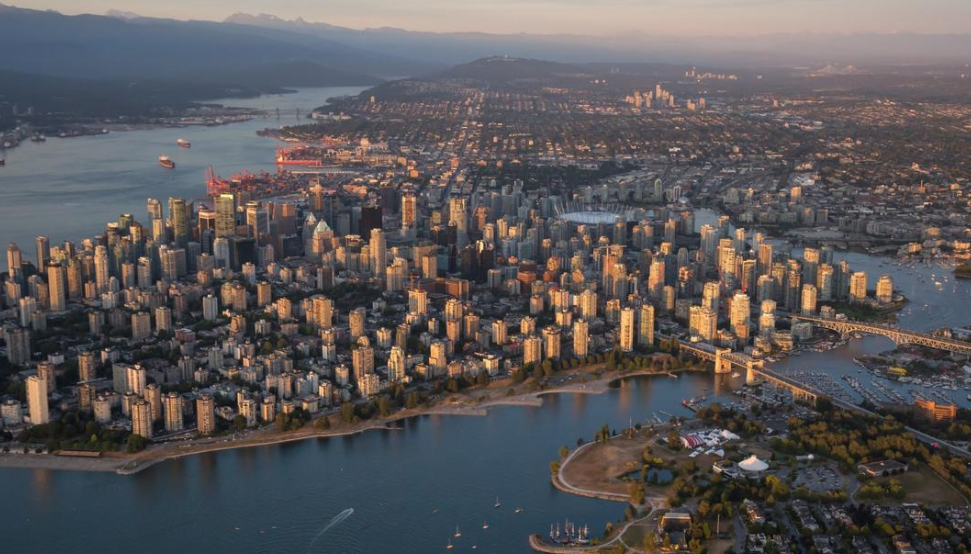
Best Provinces for International Graduates to Settle
Making Your Decision Work
Regardless of which province you choose, success will rely on planning and preparation. Here are strategies that work:
Begin networking before you graduate: Network with alumni from your program who have gone on to remain in Canada. Become a member of professional organizations in your industry. Go to tradeshows and job fairs.
Gain Canadian work experience: Even if it’s part time, or as an intern while you’re studying. Canadian employers want to see Canadian experience on your resume.
Have your credentials assessed early: If your degree is from outside Canada, it will take time to have your credentials assessed. Again, start this process early.
Educate yourself on provincial labor laws and professional licensing: Certain careers will require certification in the province you’re doing business. Look up the academic research needs for your profession in a certain province.
Establish a financial cushion: Have at least three to six months’ worth of living expenses saved by the time you graduate. Looking for a job is a pursuit that takes time, and financial stress makes everything more difficult.
Get involved in community organizations: Community centres, cultural associations and newcomer services all offer support, connections — and often job leads.
Look at smaller cities: The biggest cities get the most graduates and so more competition. And smaller cities often have positions to fill and help make their more welcoming immigration programs work.
Frequently Asked Questions
Can I go to another province after being nominated by a province?
Technically yes, but it’s complicated. You have to want to live in that province since this is a provincial nominee program. Relocating shortly after obtaining permanent residency under a PNP can be seen as misrepresentation. For example, most immigration lawyers will advise living in your nominating province for at least one to two years before moving. Federal skilled worker programs do not have this limitation.
Do I have to be employed before applying for PNP?
It varies stream to stream. Others (such as the master’s graduate stream in Ontario) do not require a job offer. Most streams, though, either require a job offer to apply or that you currently work in the province. The requirements differ by province and stream, so check the specific program you’re interested in. For more information, visit the Government of Canada immigration website.
Which province is the easiest to immigrate to in Canada for international students?
Quebec’s PEQ is the quickest Processing time for graduates who have studied and are French speaking there. The Manitoba’s MPNP is also very polite and direct to the point with requirements. There are good pathways in Ontario, for master’s and PhD graduates without a job offer. “Easiest” will depend on your particular education, language skills, and whether you have a job offer.
How much income do I need after graduation to live in Canada?
Budget to have at least $8,000 to $15,000 in savings — separate from your first month’s rent and deposit. That includes living expenses while job hunting (which can range from two to six months), the cost of getting licensed, credential assessment fees, immigration application expenses and other surprise costs. Provinces that are more expensive, such as Ontario and BC, will need to save even more.
Is the post-graduation work permit valid to work anywhere in Canada?
Yes, the federal post-graduation work permit (PGWP). The PGWP allows you to work anywhere in Canada and for any employer. You don’t have to stay in the province where you studied. But if you’re seeking nomination by a province on your way to permanent residency, you have to meet that province’s specific requirements, which typically involve spending time and working there.
What province has the best newcomer support services?
One of the strengths that you may also capitalize on to help Integrate services into your home community is that Toronto, and Ontario in many ways, has the most extensive set of settlement services because there are so many immigrants who come. Manitoba is well known for their friendly hands and support. Quebec provides free French training. Most provinces have newly arrived services — do a little research on what is available in your particular city.
Is it worth learning French to live in Quebec?
If you’re willing to make the time commitment necessary to learn French, Quebec is an exceptional value. Lower cost of living, a distinctive culture and relatively quick immigration pathways make it appealing. PEQ is one of the fastest ways to obtain permanent residency in Canada. But these methods only work if you’re actually able to speak French — a little basic knowledge won’t cut it. Think about your language learning ability and willingness before settling on Quebec.
Your Next Steps
Deciding where to live after graduating is one of the most crucial decisions you’ll ever make. The right province can be a fast track to career acceleration, help you create a life that you love and get to permanent residency faster.
Begin to research specific immigration programs in provinces of interest to you. Review job listings in your field to find out where demand is. Get to know other international graduates who opted for other provinces’ and ask them how it’s working out. Go directly to provincial immigration websites — they have the most up-to-date, thorough information about programs and requirements.
Recall, there are no perfect provinces. Each comes with its own set of trade-offs — between salary, cost of living and job opportunities, as well as what kind of life you want to live. The “best” province is the one that fell in step with your unique priorities, professional aspirations and personality.
Canada is needing Graduates like You. Your education, skills, and world view are your value. Select wisely, plan carefully and take action. Your Canadian future is out there waiting for you — all you need to do now is decide where that future will happen.
All the provinces I mention here want you to excel. They have been creating programs and supports tailored for international graduates. Take advantage of them. Do your research, ask questions, find that community and choose with confidence.
Going from international student to permanent resident begins with choosing the right place to call home. Whether you want the big-city buzz of Ontario, a natural paradise in British Columbia, a cost-effective life on the prairies or to embrace a passionate culture unlike anything that exists elsewhere at Quebec or the Maritimes – Canada has something for every lifestyle. Decide, and give it 100 per cent and then start doing what you came to Canada to do.

